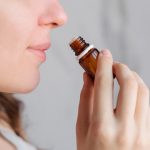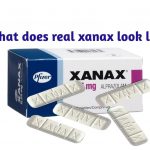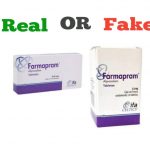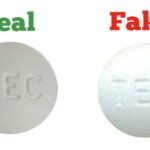What Does Real Ginseng Smell Like?
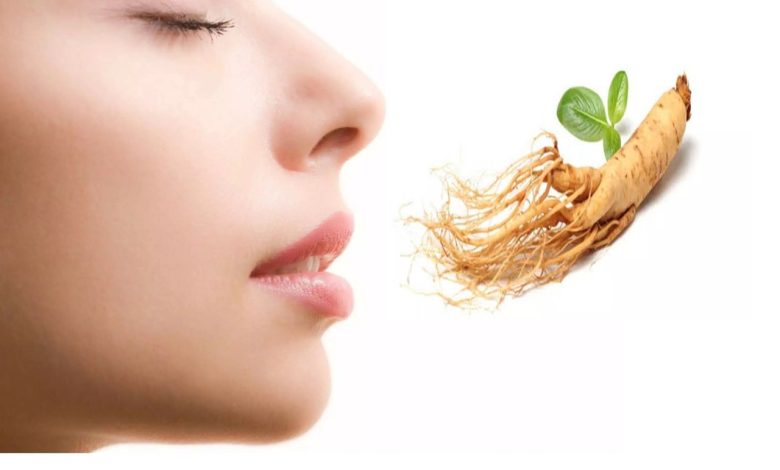
Ginseng is a perennial plant native to North America and Eastern Asia, particularly China, Korea, and Siberia. It has been used for centuries in traditional medicine systems, such as Traditional Chinese Medicine (TCM) and Korean herbal medicine, for its purported health benefits.
There are several species of ginseng, but the most commonly used and studied varieties are Asian ginseng (Panax ginseng) and American ginseng (Panax quinquefolius). These two types of ginseng have slightly different properties and are used for similar but distinct purposes.
Ginseng is prized for its adaptogenic properties, meaning it is believed to help the body adapt to stress and maintain balance. It is often used to promote overall well-being, enhance physical and mental performance, and support the body’s natural defenses.
Some of the potential health benefits attributed to ginseng include:
1. Boosting Energy and Stamina: Ginseng is commonly used as a natural energy booster and is believed to increase stamina and endurance, making it popular among athletes and individuals seeking to improve physical performance.
2. Enhancing Cognitive Function: Ginseng is thought to improve cognitive function, including memory, focus, and mental clarity. It may help support brain health and reduce the risk of age-related cognitive decline.
3. Supporting Immune Function: Ginseng is believed to strengthen the immune system and help the body fight off infections and illness. It may stimulate the production of immune cells and enhance the body’s natural defenses.
4. Reducing Stress and Anxiety: Ginseng has adaptogenic properties that may help the body cope with stress and reduce feelings of anxiety and tension. It may promote relaxation and improve overall mood.
5. Improving Sexual Health: Ginseng has a long history of use as an aphrodisiac and is believed to enhance sexual function and libido in both men and women. It may also help improve erectile dysfunction and sexual performance.
Ginseng can be consumed in various forms, including raw or dried roots, extracts, capsules, tablets, teas, and powders. It is important to use ginseng supplements as directed and to consult with a healthcare professional before beginning any new herbal regimen, especially if you have underlying health conditions or are taking medications.
The Proliferation Of Fake Ginseng
The proliferation of fake ginseng is a concerning issue within the herbal supplement industry, as it undermines consumer trust and may pose health risks to unsuspecting individuals. Fake ginseng products often contain adulterants or substitutes that mimic the appearance of genuine ginseng but lack the same quality and efficacy.
There are several reasons why fake ginseng products may be produced and sold:
1. Economic Motives: Genuine ginseng is often expensive due to its labor-intensive cultivation process and high demand in the market. Some unscrupulous manufacturers may seek to increase their profit margins by substituting genuine ginseng with cheaper ingredients or fillers.
2. Supply Shortages: The growing demand for ginseng, particularly in regions where it is traditionally used in herbal medicine, may lead to shortages in the supply chain. In response, counterfeiters may produce fake ginseng products to meet market demand and capitalize on the scarcity of genuine ginseng.
3. Lack of Regulation: The herbal supplement industry is not as tightly regulated as the pharmaceutical industry, making it easier for counterfeiters to produce and distribute fake ginseng products without facing legal consequences. This lack of oversight allows counterfeiters to operate with relative impunity and exploit consumers’ trust.
4. Difficulty in Authentication: Genuine ginseng roots can be difficult to authenticate, especially for the average consumer. Counterfeiters may take advantage of this by selling fake ginseng products that closely resemble the appearance of genuine ginseng, making it challenging for consumers to distinguish between the two.
What Does Real Ginseng Smell Like?
The scent of a real ginseng can be described as earthy, slightly woody, and subtly bitter with hints of sweetness. It possesses a complex aroma that reflects its natural origins and medicinal properties.
Imagine walking through a forest where ginseng grows naturally. The earthy scent of the soil mingles with the woody fragrance of the surrounding trees. In this environment, the aroma of ginseng emerges, reminiscent of freshly turned earth and the rich, fertile soil in which it thrives.
As you hold a piece of ginseng in your hand, you may notice its earthy aroma intensify, evoking images of the plant’s sturdy roots reaching deep into the ground to absorb nutrients. There is a sense of grounding and connection to nature in the scent of ginseng, as if it carries the essence of the earth itself.
Intermingled with the earthiness is a subtle bitterness that adds depth to the fragrance. This bitterness is reminiscent of herbal medicines and underscores the therapeutic potency for which ginseng is revered. It serves as a reminder of the plant’s medicinal properties and its role in traditional healing practices.
Amidst the earthiness and bitterness, there is also a hint of sweetness in the scent of ginseng. This sweetness is delicate and ephemeral, softening the overall aroma and adding a touch of complexity. It may evoke images of dried fruits or floral notes, balancing the earthy and bitter elements with a subtle sweetness.
Overall, the scent of ginseng is unique and distinctive, embodying the plant’s natural origins and medicinal qualities. It is a fragrance that resonates with the wisdom of ancient healing traditions and the vitality of the natural world, inviting us to connect with the earth and experience the benefits of this revered herb.
Where to get genuine ginseng products
To ensure you’re purchasing genuine ginseng products, it’s essential to buy from reputable sources that prioritize quality, authenticity, and transparency. Here are some reliable places to find genuine ginseng products:
1. Certified Herbal Shops: Visit local herbal shops or wellness stores that specialize in herbal remedies and supplements. These stores often source their products from reputable suppliers and may carry a variety of genuine ginseng products, including whole roots, extracts, capsules, and teas.
2. Health Food Stores: Many health food stores carry a selection of high-quality herbal supplements, including ginseng products. Look for stores that prioritize natural and organic products and have a reputation for sourcing from trustworthy suppliers.
3. Online Retailers: Reputable online retailers can be a convenient option for purchasing ginseng products. Look for well-established websites that specialize in herbal supplements and have positive customer reviews. Be sure to verify the authenticity of the products and check for third-party testing and certifications.
4. Direct from Manufacturers: Some ginseng manufacturers sell their products directly to consumers through their websites or authorized distributors. Buying directly from the manufacturer can ensure product freshness and authenticity. Look for manufacturers with a strong reputation for quality and transparency.
5. Traditional Chinese Medicine (TCM) Practitioners: TCM practitioners often prescribe ginseng as part of their herbal treatment plans. They may carry genuine ginseng products or recommend reputable suppliers where you can purchase them.
6. Certified Organic Brands: Look for ginseng products from brands that are certified organic by reputable organizations. Organic certification ensures that the ginseng has been grown and processed without synthetic pesticides, herbicides, or other harmful chemicals.
7. Trusted Brands with Third-Party Testing: Choose ginseng products from brands that conduct third-party testing to verify quality and purity. Look for certifications from organizations such as the United States Pharmacopeia (USP), NSF International, or ConsumerLab.com.
8. Local Farmers Markets: Some local farmers markets may have vendors selling genuine ginseng products, including fresh ginseng roots and herbal preparations. This can be a great way to support local growers and ensure product freshness.
When purchasing ginseng products, be sure to read product labels carefully, check for certifications and quality seals, and research the reputation of the manufacturer or supplier. By being informed and selective about where you buy your ginseng products, you can increase the likelihood of getting genuine, high-quality supplements.

